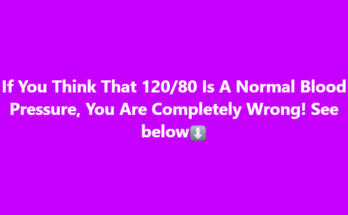In today’s fast-paced world, many people struggle with stress, anxiety, muscle tension, and sleep disturbances. While these issues can have multiple causes, one often overlooked factor is a simple mineral deficiency — magnesium. This essential nutrient plays a key role in hundreds of bodily functions, but one of its most vital jobs is helping to calm the nervous system and relax muscles.
Understanding the connection between magnesium, muscle function, and nerve health can make a significant difference in how we manage both physical and mental tension. In this article, we’ll explore how magnesium supports a calmer body and mind, the symptoms of deficiency, and how to get more of it naturally.






What Is Magnesium and Why Is It Important?
Magnesium is a mineral found in every cell of the body. It’s involved in over 300 enzymatic reactions that affect everything from energy production to DNA synthesis. Despite being so crucial, it’s estimated that nearly half of all adults in the United States aren’t getting enough magnesium through their diet.
One of magnesium’s most important roles is supporting the proper function of the muscles and nervous system. It does this by regulating nerve signals and ensuring that muscles contract and relax smoothly. When magnesium levels are low, muscles can become tight, cramp easily, or even twitch. Similarly, the nervous system can become overactive, leading to symptoms like irritability, anxiety, restlessness, and poor sleep.
How Magnesium Calms the Muscles
Muscles rely on a delicate balance of calcium and magnesium to function properly. Calcium causes muscles to contract, while magnesium acts as a natural calcium blocker, helping them to relax. Without enough magnesium, the body can stay in a contracted state, leading to muscle cramps, stiffness, and spasms.
Have you ever woken up in the middle of the night with a painful leg cramp or experienced twitching after a workout? These are common signs that your muscles may be lacking sufficient magnesium. Athletes and active individuals, in particular, lose magnesium through sweat, which increases their need for replenishment.
Additionally, magnesium supports oxygen uptake and energy production in the muscles, reducing fatigue and improving recovery. This is why it’s often included in sports supplements and recommended for people dealing with chronic muscle pain or tightness.
The Nervous System’s Dependence on Magnesium
Magnesium’s calming effect isn’t limited to the muscles — it also has a profound impact on the brain and nervous system.
This mineral acts as a gatekeeper for N-methyl-D-aspartate (NMDA) receptors in the brain, which are involved in regulating excitatory neurotransmission. In simpler terms, magnesium helps prevent excessive stimulation of the brain’s neurons. When magnesium levels are low, the brain can become overexcited, leading to symptoms such as:
- Anxiety
- Mood swings
- Difficulty concentrating
- Restlessness
- Poor sleep quality
Magnesium also supports the production of gamma-aminobutyric acid (GABA), a calming neurotransmitter that helps reduce stress and promote relaxation. People who struggle with chronic stress or anxiety may find that increasing magnesium intake has a noticeable effect on their mood and emotional balance.
Symptoms of Magnesium Deficiency
Magnesium deficiency can be subtle at first, but over time it can contribute to a range of health problems. Common signs include:
- Muscle cramps or spasms
- Fatigue or weakness
- Irritability or nervousness
- Difficulty sleeping
- Headaches or migraines
- Tingling or numbness
- Irregular heartbeat
- Increased sensitivity to stress
These symptoms are often brushed off or attributed to other causes, but it’s worth considering a magnesium deficiency — especially if you’re not eating many magnesium-rich foods or if you have a condition that affects absorption.
Certain factors can increase the risk of deficiency, such as:
- High levels of stress
- Heavy alcohol consumption
- Digestive disorders (e.g., IBS, Crohn’s disease)
- Diabetes
- Use of certain medications like diuretics or proton pump inhibitors
- Excessive caffeine intake
Natural Sources of Magnesium
The good news is that magnesium is widely available in food, particularly in whole, plant-based sources. Some of the richest dietary sources include:
- Leafy green vegetables (spinach, Swiss chard, kale)
- Nuts and seeds (pumpkin seeds, almonds, cashews)
- Whole grains (brown rice, quinoa, oats)
- Legumes (black beans, lentils, chickpeas)
- Avocados
- Bananas
- Dark chocolate (70% cacao or higher)
Including a variety of these foods in your daily meals can help keep magnesium levels steady and support overall wellness.
However, for individuals with chronic stress, intense physical activity, or certain health conditions, getting enough magnesium from food alone may not be sufficient. In such cases, supplements may be beneficial.
Choosing a Magnesium Supplement
There are several forms of magnesium supplements available, each with different benefits:
- Magnesium glycinate – known for its calming effects; good for anxiety and sleep
- Magnesium citrate – helps with digestion and constipation
- Magnesium malate – supports energy production and muscle function
- Magnesium chloride – easily absorbed and can be used topically
- Magnesium threonate – believed to support cognitive function and brain health
If you’re considering a supplement, it’s a good idea to consult a healthcare provider, especially if you’re taking medication or have a medical condition. Most adults need between 310–420 mg of magnesium daily, but individual needs can vary.
Magnesium and Sleep Quality
Many people who increase their magnesium intake notice improved sleep — and that’s no coincidence. Magnesium plays a key role in regulating melatonin, the hormone responsible for your sleep-wake cycle. Its ability to activate the parasympathetic nervous system (which promotes relaxation) makes it especially useful for those who struggle with falling or staying asleep.
In one study, older adults who took a magnesium supplement experienced better sleep efficiency, longer sleep time, and reduced nighttime awakenings. Combined with a consistent sleep routine, magnesium can be a natural and effective remedy for insomnia and restlessness.
Tips for Improving Magnesium Absorption
To get the most from your magnesium intake, consider these tips:
- Pair it with vitamin D – Vitamin D helps regulate magnesium levels in the body.
- Limit caffeine and alcohol – Both can interfere with magnesium absorption.
- Stay hydrated – Water supports the transport of magnesium throughout the body.
- Avoid high-phytate foods in excess – Found in raw grains and legumes, phytates can block magnesium absorption; soaking or sprouting grains can help.
Final Thoughts
Magnesium is more than just a mineral — it’s a natural relaxant that the body relies on to maintain balance between tension and calm. From soothing sore muscles to supporting a peaceful mind, its impact is far-reaching. Yet, many people are unaware of how important it is until they experience the relief that comes with restoring healthy levels.
If you’re dealing with stress, muscle discomfort, sleep problems, or just want to improve your overall wellness, take a closer look at your magnesium intake. A few dietary changes or the right supplement could make a noticeable difference in your physical and emotional health.



